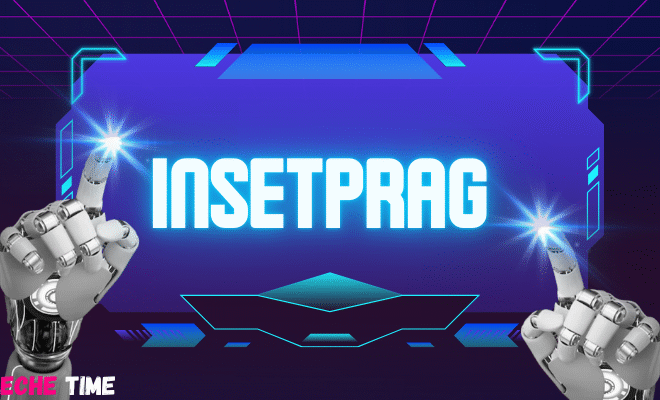
Building Your Cybersecurity Certifications Roadmap From Beginner to Expert
In today’s fast-paced digital world, cybersecurity skills are essential. Navigating the cybersecurity certifications roadmap can seem daunting. But it’s key to advancing your career.
Starting from a beginner level and advancing to an expert can open many doors. These certifications validate your skills and knowledge. They show employers that you can protect valuable data.
Ready to start? Here are some tips to guide you in building your cybersecurity certification roadmap. Follow these steps to watch your career soar. Dive in and secure your future today!
Start with the Basics
Understanding the basics is the first step in learning how to get started in cyber security. Start with foundational courses that cover basic concepts. These are essential to build a strong knowledge base.
Basic certifications like CompTIA Security+ are a great starting point. They provide an overview of key security concepts. They also set the stage for more advanced certifications.
Learning how to get started in cyber security involves understanding simple skills first. Focus on basic network and security principles. Build your knowledge step-by-step to prepare for advanced topics.
Identify Your Career Goals
Identifying your career goals is crucial in your cybersecurity journey. Think about what areas of cybersecurity interest you the most. This could be network security, ethical hacking, or cyber forensics.
Once you know your interests, research the certifications required. Each area of cybersecurity has specific certifications that employers look for. Having the right certification can set you apart from others.
Setting short-term and long-term goals can keep you on track. Short-term goals might include getting a basic certification or finishing a course. Long-term goals could be achieving expert-level certifications or landing your dream job.
Research Certification Paths
Doing research on certification paths is essential. Look for certifications that fit your career goals. This will help in finding the right cybersecurity certification path for you.
Read reviews and join online forums. This can give you insight into the best certifications. Talking to experts can help as well.
Consider the time and effort needed for each certification. Some require a lot of study and practice. Make sure to choose the ones that match your skills and interests.
Get Practical Experience
Gaining practical experience is essential in the field of cybersecurity. Classroom learning provides knowledge, but hands-on practice is key. Real-world experience helps apply what you’ve learned.
Seek internships or entry-level jobs to get started. These opportunities let you work with experienced professionals. You’ll gain insights and develop your skills further.
Consider building a home lab to practice. Setting up your own lab can be inexpensive and useful. It allows you to experiment and learn at your own pace.
Pursue Intermediate Certifications
After mastering the basics, it’s time to pursue intermediate certifications. These certifications dig deeper into cybersecurity concepts. They help you build on the knowledge you already have.
Certifications like Certified Ethical Hacker (CEH) are good options. They teach you how to think like a hacker. This helps you better defend against attacks.
Intermediate certifications make you more appealing to employers. They show you have a strong understanding of cybersecurity. This makes you a valuable asset to any team.
Join Cybersecurity Communities
Joining cybersecurity communities can boost your learning and networking. These groups often meet online or in person. You can learn from experts and share your own insights.
Being part of the community also helps you stay updated. Cybersecurity is always changing with new threats and tools. Communities often share the latest news and trends.
Networking is another big benefit. You can make connections with people in the field. These relationships can help you find job opportunities and mentors. Joining these groups will support your career growth.
Keep Up with Industry Trends
Staying updated with industry trends is key to cybersecurity. New threats emerge every day, requiring you to stay informed. Follow cybersecurity news websites and blogs to keep up.
Attending conferences and webinars can also help. These events offer the latest updates from experts. They are a great place to learn and network with others in the field.
Another tip is to join online forums and groups. Engage in discussions and ask questions. Being active in these communities can provide valuable insights and updates.
Advance to Expert-Level Certifications
Moving to expert-level certifications can boost your career in cybersecurity. Certifications like CISSP or CISM show that you have advanced skills. They also prove you can handle top-level security tasks.
Expert-level certifications often need more study and experience. These certifications cover deep topics in security. You may need to pass hard exams to earn them.
Planning is key when aiming for expert-level certifications. Set clear goals and follow a study plan. Use resources like study guides and online courses. With effort, you can achieve these advanced certifications.
Prepare for Exams Thoroughly
Preparing well for exams is essential to passing cybersecurity certifications. Start by creating a study schedule. Make sure to allocate time each day to review materials.
Use study guides and online resources to understand key concepts. Practice with sample questions to get used to the exam format. These tools can help you identify weak areas to focus on.
Joining study groups can also be helpful. Other learners can provide support and motivation. Plus, discussing topics with peers can deepen your understanding.
Partner with a Training Provider
Partnering with a training provider can speed up your learning journey. A good training provider offers structured courses. This structure helps you stay focused and organized.
Khrexel Tech Group is a top choice for many learners. They have experienced instructors who guide you step-by-step. This makes complex topics easier to understand.
Training providers also offer hands-on labs. These labs give you a chance to practice what you learn. Practical experience is key in the field of cybersecurity.
Master Cybersecurity Certifications Roadmap
Mastering the cybersecurity certifications roadmap is a strategic journey that can significantly enhance your career. By starting with the basics, setting clear career goals, and progressively acquiring more advanced certifications, you position yourself as a highly skilled professional.
Continual learning and practical experience are vital to staying current in this dynamic field. Embrace the roadmap and watch your cybersecurity career reach new heights.
Discover more insights and tips by reading our latest blogs. Stay ahead of your cybersecurity career with our expert advice.








